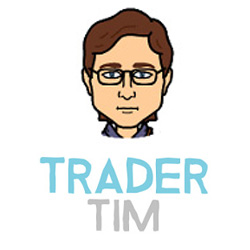The situation around proprietary (prop) trading is becoming more complex as MetaQuotes, the company behind the MetaTrader platforms, is reportedly restricting their use. Although MetaQuotes has not officially confirmed these measures, many prop trading firms and their brokerage partners have experienced sudden disruptions to their partnerships. The primary concern appears to be the presence of active US clients on these platforms.

An email from a MetaQuotes representative has been circulating on social media and within trading communities. The email claims that “to have MetaTrader 5 and provide services in the USA, [platforms] need to be regulated by FINRA or NFA, even if it is for educational purposes.”
Why do forex prop firms ban US traders?
So, why are forex prop firms banning U.S. traders? The core issue lies in regulatory challenges. Prop trading platforms have been facing increasing scrutiny, especially concerning their operations in the United States. The forex trading industry in the U.S. is less regulated compared to other regions, which has led to concerns about how these platforms onboard U.S. clients.
This regulatory gap has prompted MetaQuotes to take action, leading to a widespread crackdown that affects how prop trading firms operate both within and outside the U.S. Many firms have been forced to shut down or suspend their services to U.S.-based clients to comply with these new regulations.
MetaTrader Platforms
MetaTrader platforms, particularly MetaTrader 4 and MetaTrader 5, are at the center of this issue. These platforms are incredibly popular among forex traders for their advanced charting tools, automated trading capabilities, and user-friendly interface. However, MetaQuotes’ alleged crackdown has put a spotlight on these platforms, making it difficult for prop trading firms to continue their operations as usual.
The unverified email shared above suggests that in order to use MetaTrader 5 and offer services in the U.S., firms must be regulated by either FINRA (Financial Industry Regulatory Authority) or NFA (National Futures Association). This requirement, even for educational purposes, has created significant barriers for prop trading firms that do not meet these regulatory standards.
Regulation Challenges
Regulation is a key factor in the current situation. In many regions outside the U.S., prop trading platforms operate under varying degrees of regulatory oversight. However, the U.S. has stricter regulatory requirements that many prop trading firms struggle to meet. This discrepancy has led to the recent crackdown by MetaQuotes.
For U.S.-based traders and firms, this means navigating a complex regulatory environment. Being regulated by FINRA or NFA involves meeting rigorous standards, including financial requirements, compliance with anti-fraud measures, and ensuring transparency in trading activities. Firms that cannot meet these standards are left with no choice but to cease operations for U.S. clients.
Why Is This Important?
Understanding the implications of these regulatory changes is crucial for anyone involved in prop trading or considering entering the market. Here are some key points to consider;
- Regulatory Compliance: Firms need to be aware of the regulatory requirements in the countries they operate in. In the U.S. This means adhering to FINRA and NFA guidelines.
- Client Impact: Prop trading firms need to communicate clearly with their clients about any changes to their services, particularly if they are suspending operations for regulatory reasons.
- Market Adaptation: Firms must adapt their business models to meet regulatory standards without compromising their operational efficiency.
- Global Operations: For firms operating internationally, understanding the regulatory landscape in each region is essential to avoid disruptions.
What are the alternatives for US traders?
Love it or hate it, prop trading is becoming a major trend in the retail trading industry and is shaping the future of the FX/CFD markets. As a broker, it’s essential to stay ahead of these changes. Many of the first CFD brokers have already started to offer prop trading services.
The Rise Of The Future prop firms
Modern prop firms provide a unique opportunity for retail traders to use significant company capital without risking their own money. Although most of the trading is done with virtual funds, the profits traders make are real.
To get started, traders usually pay a small fee to enter an evaluation process. This process tests their trading skills through simulations. Those who pass the evaluation are given access to a funded account, where they can keep a large share of their profits, typically between 60% and 80%.
“Prop trading is a fantastic chance for new traders to see if trading suits them. For experienced traders, it offers higher funding levels, advanced technology, and extensive market data,” says Crystal Lok, Head of Emerging Markets at OANDA. “It also provides learning opportunities at any level, with the only cost being the entry fee for the challenge.”
Several brokers, previously known in the FX/CFD sector, are now offering dedicated prop trading services. These include:
- OANDA: Launched OANDA Labs Trader
- Hantec Markets: Introduced Hantec Trader
- IC Markets: Created IC Funded
- Axi: Pioneered with Axi Select
These brokers recognize the potential of prop trading and are investing in it as a growth area.
The Future of FX/CFD Brokers: Prop Trading
A survey by Finance Magnates found that 90% of respondents believe prop trading services are the future for CFD brokers. By offering prop trading alongside traditional accounts, brokers can attract a wider range of clients.
This shift came after MetaQuotes suspended licenses for non-broker prop firms, leading to many closures, service interruptions, and payment delays. Some users have been waiting over three months to access their funds.
This has created an opportunity for other platforms and brokers to offer safer, regulated prop trading conditions. Entering this new market can result in lower client acquisition costs compared to the traditional CFD sector.
Stock Prop Firms – An Amazing Opportunity US Traders Are Not Aware Of
Stock prop firms present an incredible opportunity for US traders that often goes unnoticed. These firms specialize in stock trading, providing traders with the resources and capital to trade equities without the need to risk their own money. One standout leader in this industry is Trade The Pool.
Specialized Stock Trading Platforms: Stock prop firms, like Trade The Pool, offer platforms specifically designed for stock trading. These platforms are equipped with advanced tools and features that cater to the unique needs of US stock traders.
Access to Capital: One of the major benefits of stock prop firms is access to significant capital. Traders can leverage this capital to maximize their trading potential and profits without risking their personal funds.
Comprehensive Training Programs: Trade The Pool and other leading stock prop firms provide extensive training programs. These programs are designed to equip traders with the necessary skills and knowledge to succeed in the stock market.
Risk Management Support: Stock prop firms emphasize risk management, offering tools and support to help traders manage their risks effectively. This ensures that traders can operate in a safe and secure trading environment.
Competitive Profit Sharing: These firms often have competitive profit-sharing models, allowing traders to keep a substantial portion of their earnings while also benefiting from the firm’s resources and support.
Community and Networking: Being part of a stock prop firm like Trade The Pool also means joining a community of like-minded traders. This network can provide valuable insights, support, and opportunities for collaboration.
Classic prop firms (proprietary firms)
Classic prop firms, also known as proprietary trading firms, have been a staple in the trading industry for many years. They offer their own unique benefits;
Established Reputation: Classic prop firms have a long-standing reputation in the industry. They have built trust over the years and are known for their reliability and stability.
Experienced Traders: These firms often attract seasoned traders with extensive experience. As a result, they can offer valuable insights and mentorship to newer traders, fostering a collaborative and supportive trading environment.
Traditional Trading Methods: Classic prop firms may rely more on traditional trading methods and strategies. While they may not be as innovative as future prop firms, they provide a stable and consistent approach to trading.
Strong Network: With years of operation, classic prop firms have developed strong networks and connections within the industry. This can be beneficial for traders seeking opportunities and partnerships.
Focus on Long-Term Viability: These firms prioritize long-term viability and sustainability. They implement tried-and-tested risk management practices to protect their traders and ensure their continued success.
US traders have various alternatives to consider when choosing a prop trading firm. Future-focused prop firms offer technological advancements, innovative strategies, and global expansion opportunities. On the other hand, classic prop firms provide an established reputation, experienced traders, and a focus on long-term viability.
Summary
The world of forex prop trading is becoming more complex, especially for US traders. Regulatory challenges and recent changes by MetaQuotes, the company behind MetaTrader platforms, are causing significant shifts in the industry. As prop trading firms adjust to these new regulations, US traders need to look for alternative options that fit their needs.
By understanding the differences between the types of firms, traders can make informed decisions. Whether choosing the cutting-edge advantages of future prop firms or the established benefits of classic prop firms, US traders have various alternatives to consider in this changing market.

 Hot Features
Hot Features













